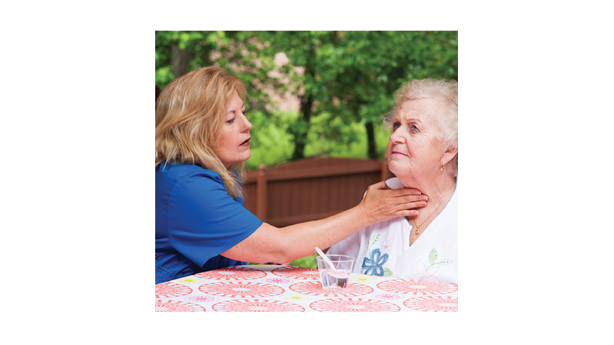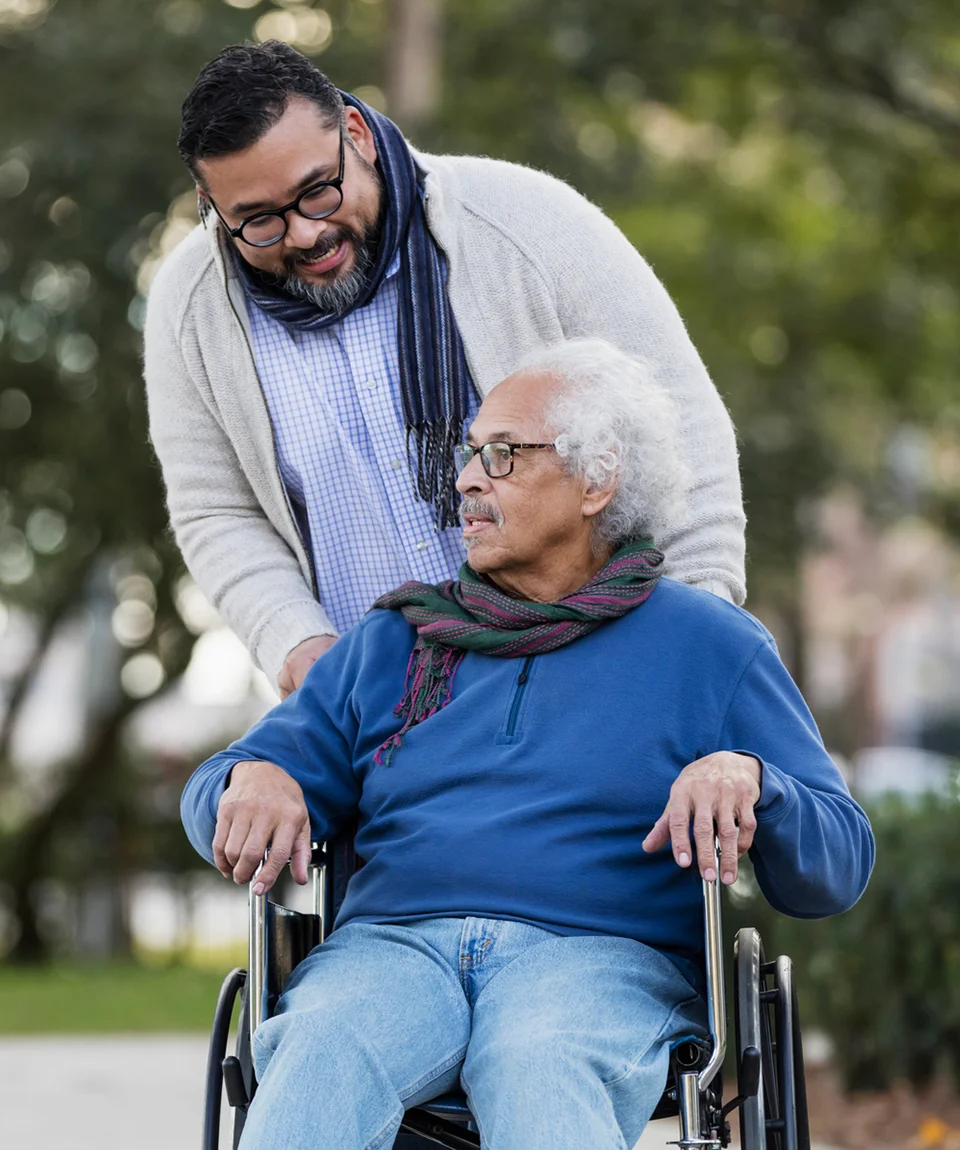Swallowing
Swallowing requires the coordination of many muscles to move food and liquid through the mouth, throat and esophagus to the stomach. Stroke can affect these muscles, resulting in a difficulty swallowing food and fluids (dysphagia). You may also have decreased alertness, attention, fatigue or reduced feeling in your mouth, which can also impact the ability to swallow safely.
Dysphagia can put you at risk of choking or inhaling food (aspiration or silent aspiration). This can lead to pneumonia. Dysphagia can also put you at risk for not getting enough to eat (malnutrition) and not getting enough to drink (dehydration). If you are having trouble swallowing, talk to your healthcare team about a swallowing test.
If you have dysphagia, the speech language pathologist, dietitian or occupational therapist on your team will work with you. They will help develop a plan to make sure you are able to safely eat and drink.

The plan will tell you what the best food consistency is for your specific swallowing abilities and give you examples of foods that you can swallow safely. Some plans will recommend foods that have had their textures modified, or liquids that have been thickened to make them safer to swallow. Each person and plan is different — ask your team what is best for you.
Here are some safe eating tips:
- Make sure you are sitting up straight.
- Remove distractions, such as TV, radio or cell phone.
- Do not talk when chewing. Ask people not to ask questions or distract you when you are eating.
- Cut food into small bites. Use a teaspoon instead of a tablespoon to make sure you are not putting too much in your mouth at once.
- Chew food completely on the stronger side of your mouth. Swallow before taking the next bite.
Getting enough liquids
Sometimes when drinking is challenging, people avoid it. This can lead to problems like dehydration or constipation. Make sure you drink six to eight cups a day of non-caffeinated, non-carbonated fluids that are easiest for you to swallow. Keep a water bottle or travel mug filled with the right liquid close by at all times. Take sips often throughout the day to stay hydrated.
Related information
Dietitians can work with you to find healthy food choices and meal preparation strategies that meet your needs.
Swallowing and communication after stroke (video)
